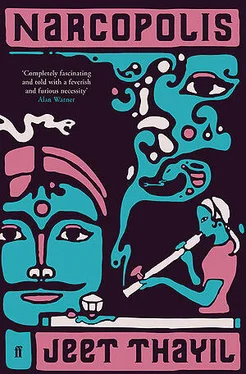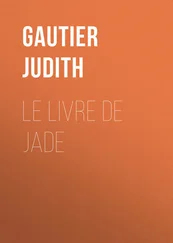We made the whole earth a couch for you,
And the mountains its tent stakes.
We created you of two sexes,
And ordained your sleep for rest
Sura LXXVIII
Prologue Something for the Mouth
Bombay, which obliterated its own history by changing its name and surgically altering its face, is the hero or heroin of this story, and since I’m the one who’s telling it and you don’t know who I am, let me say that we’ll get to the who of it but not right now, because now there’s time enough not to hurry, to light the lamp and open the window to the moon and take a moment to dream of a great and broken city, because when the day starts its business I’ll have to stop, these are night-time tales that vanish in sunlight like vampire dust — wait now, light me up so we do this right, yes, hold me steady to the lamp, hold it, hold, good, a slow pull to start with, to draw the smoke low into the lungs, yes, oh my, and another for the nostrils, and a little something sweet for the mouth, and now we can begin at the beginning with the first time at Rashid’s when I stitched the blue smoke from pipe to blood to eye to I and out into the blue world — and now we’re getting to the who of it and I can tell you that I, the I you’re imagining at this moment, a thinking someone who’s writing these words, who’s arranging time in a logical chronological sequence, someone with an overall plan, an engineer-god in the machine, well, that isn’t the I who’s telling this story, that’s the I who’s being told, thinking of my first pipe at Rashid’s, trawling my head for images, a face, a bit of music, or the sound of someone’s voice, trying to remember what it was like, the past, recall it as I would the landscape and light of a foreign country, because that’s what it is, not fiction or dead history but a place you lived in once and cannot return to, which is why I’m trying to remember how it was that I got into trouble in New York and they sent me back to Bombay to get straight, how I found Rashid’s, and how, one afternoon, I took a taxi through roads mined with garbage, with human and animal debris, and the poor, everywhere the poor and deranged stumbled in their rags or stood and stared, and I saw nothing out of the ordinary in their bare feet and air of abandonment, I smoked a pipe and I was sick all day, hearing whispers in my stone sleep about the Pathar Maar, the stone killer, who worked the city at night, whispers that leaked upward from the poor, how he patrolled the working-class suburbs of Sion and Koliwada and killed them while they slept, approached those who slept alone, crept up to them in the night and killed them, but no one noticed because his victims were more than poor, they were invisible entities without names or papers or families, and he killed them carefully, a half-dozen murdered men and women, pavement people of the north-central suburbs, where the streets are bordered by effluents and sludge and oily green shimmer, and all that year he was an underworld whisper, unknown to the city’s upper classes until he became a headline, and in my delusion I thought I understood his pity and terror, I thought I knew him as a Samaritan, a pure saviour of the victims of a failed experiment, the Planned Socialist State of India, he was trying to end their misery, the Pathar Maar, he was on a mission to wipe out poverty, or so I thought, sunk in my own poverty in the back of the taxi, slumped against upholstery stained a Bombay shade of brown, telling the driver to slow down as we drove past the women, and I saw, I swear I did, the face of a maid who looked after me when I was a small child, a dark woman who smiled sweetly when I hit her, and I knew it was her, washed up in the dead-end district where the women were graded, were priced and displayed in every street and gully and house, women from the far north, from the south, from all over, bought new and used, sold or given away, bartered, almost free, I knew it was her but I didn’t stop and the taxi slowed to a crawl behind a jeep with a printed sign, GOVERNAMENT OF INDIA, and when the driver found the address I’d given him for Rashid’s he assumed I was going to the cages, the cheapest rooms on the street, where the women were five rupees and upwards, and he pointed to the houses with numbers printed on the window boxes and said, ‘Number houses better,’ nodding at the streetwalkers and the women in the cages, ‘these girls dirty,’ as I stepped out of the cab and into chaos because a buffalo cart had broken down and a crowd was quickly gathering to watch the animal kneel in the narrow road as the carter whipped it in sharp methodical bursts of fury, though otherwise he was calm, he didn’t curse or sweat as his whip hand rose and fell, rose and fell, slabs of ice packed in sawdust melting in orderly rows on the back of the cart, and everywhere the poor and deranged waited and watched, as I did before climbing the stairs to the first-floor address I’d been given, to stand at the doorway and take it in, a smell of molasses and sleep and illness, a woman tending the pipe, using a long needle to cook the opium, her hand moving as if she was knitting, a couple of smokers lying on pallets, an old man hunched over a stove, inhaling as the opium bubbled, everything in the room happening on the floor, sleeping mats and pillows folded or spread, a calendar on the wall with a photograph of a mosque — listen, stop there and light me again, or let me do it, yes, ah yes, now that’s it, lovely, such a sweet meditation, no, more than meditation, it’s the bliss that allows calm to settle on the spirit and renders velocity manageable, yes, lovely — and now, in the same city, though it’s a lifetime later and here we are, I and I, which isn’t said in the Rastafari way to indicate we , but to separate the two I machines, the man and the pipe, the who and the who, telling this story about a long-ago time, when I smoked a pyali and I was sick all day, my first time on Shuklaji Street, new to the street and the city, separated by my lack of knowingness, by the pace of human business on the sidewalks and shops, knowing I didn’t have the skills, my gait too slow, paying too much attention to the wrong things, because in my head I wasn’t all there and the partialness, the half-there distractedness, was apparent in my face, people looking at me and seeing jet lag, recognizing it as a spiritual deficiency, and I went into Rashid’s room, placed my head on a wooden pillow and stretched out, trying to get comfortable, realizing with some surprise that the old man who was nodding over the cookpot was speaking English, speaking to me in the language of a death-mad, religion-obsessed country of living saints, asking if I was Syrian Christian, because he’d noticed the Coptic cross around my neck and he knew Roman Catholics wouldn’t wear that kind of cross, and of course he was right, I was Syrian Christian, a Jacobite, if you want the subsect of the subsect — so good, this good smoke, the last smoke from the last pipe on the last night of the world — the old man, whose name was Bengali, saying, ‘Ah, in that case, perhaps you can answer a question that has been troubling me, I mean the particular way Christianity caught on in Kerala and how Kerala’s Hindus, instead of adjusting themselves to Christianity, adjusted Christianity to themselves, to the old caste divisions, and, this is my question, would Jesus have approved of caste-conscious Christianity when his entire project was the removal of it, a man who fraternized with the poor, with fishermen, lepers and prostitutes, the sick and dying, women, his pathology and compulsion to espouse the lowest of the low, his message being God’s unconditional love,
Читать дальше












